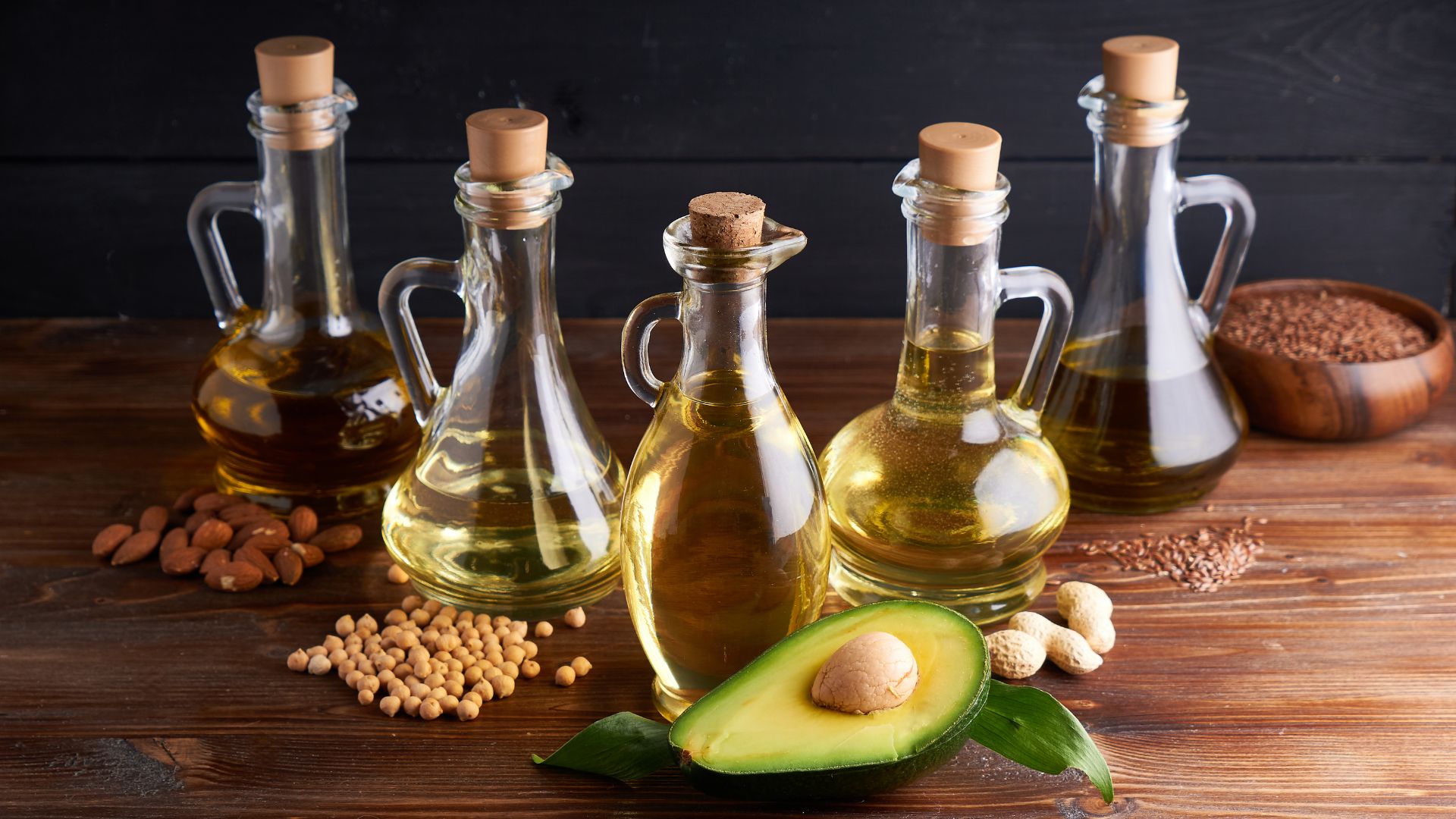
Oil is a viscous liquid derived from plants, animals, or minerals. It is commonly used in cooking, lubrication, fuel, and as a base for various industrial and cosmetic products.
Table of Contents
Choosing the right cooking oils can have a significant impact on your health, as different oils have varying nutritional profiles and uses. Here are eight oils that are generally considered to be beneficial for health:
Olive Oil
- Benefits: Rich in monounsaturated fats, antioxidants, and anti-inflammatory compounds. It is associated with heart health and may help reduce the risk of chronic diseases.
- Best Use: Use extra virgin olive oil for salads and low to medium heat cooking.
Avocado Oil
- Benefits: High in monounsaturated fats and contains antioxidants. It also has a high smoke point, making it suitable for high-heat cooking.
- Best Use: Ideal for sautéing, frying, and grilling due to its high smoke point.
Coconut Oil
- Benefits: Contains medium-chain triglycerides (MCTs) and may have potential benefits for weight management. It has a high smoke point.
- Best Use: Suitable for baking, sautéing, and frying at high temperatures.
Flaxseed Oil
- Benefits: High in omega-3 fatty acids, particularly alpha-linolenic acid (ALA), which is beneficial for heart health and inflammation.
- Best Use: Consume raw, drizzled on salads or added to smoothies, as it is not suitable for cooking at high temperatures.
Grapeseed Oil
- Benefits: Contains polyunsaturated fats and vitamin E. It has a high smoke point and a mild flavor.
- Best Use: Suitable for high-heat cooking, such as frying and sautéing.
Walnut Oil
- Benefits: High in polyunsaturated fats, particularly alpha-linolenic acid (ALA), and contains antioxidants.
- Best Use: Use in salad dressings or drizzle over cooked vegetables, as it is not ideal for high-heat cooking.
Sesame Oil
- Benefits: Rich in monounsaturated and polyunsaturated fats, and contains antioxidants. It has a distinct flavor.
- Best Use: Commonly used in Asian cuisine for stir-frying and as a flavor enhancer in dressings and sauces.
Canola Oil
- Benefits: Low in saturated fat and high in monounsaturated fats. It also contains omega-3 fatty acids.
- Best Use: Suitable for baking, sautéing, and frying at medium to high temperatures.
It's important to note that moderation and balance are key when incorporating oils into your diet. Additionally, consider individual health conditions and dietary needs when choosing oils. Always be mindful of the smoke point of oils to prevent the production of harmful byproducts during cooking. As with any dietary choices, consulting with a healthcare professional or registered dietitian can provide personalized advice based on individual health considerations.



Leave a Reply
You must be logged in to post a comment.